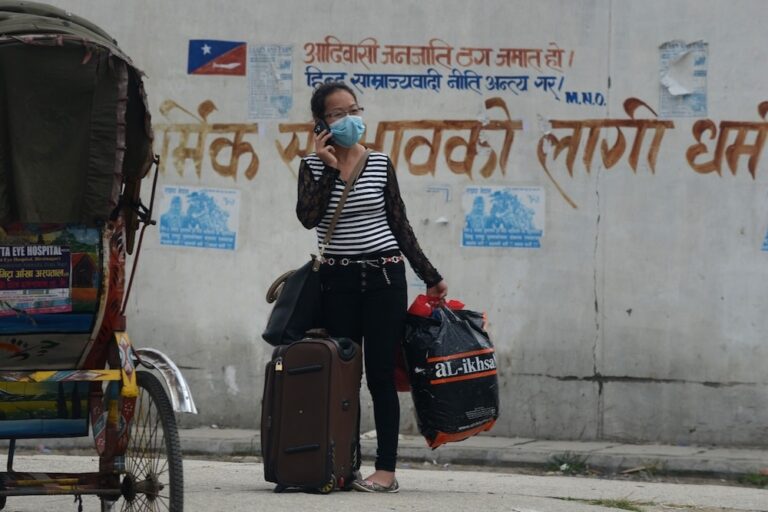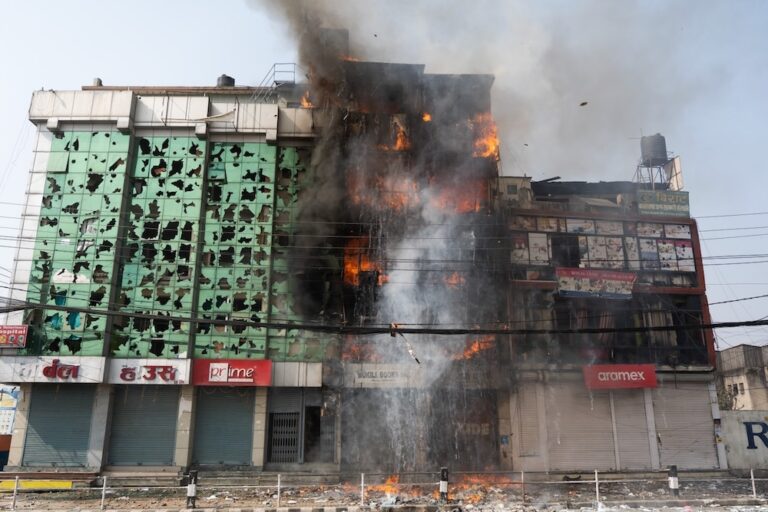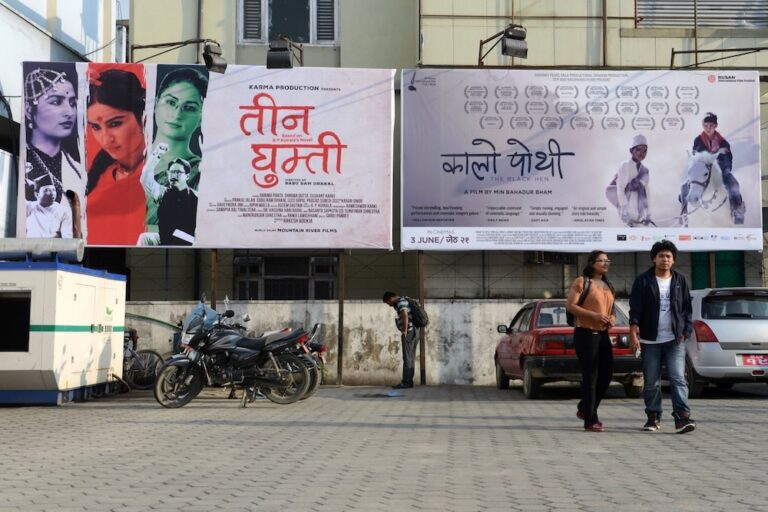(RSF/IFEX) – In a letter to Nepalese Minister of Information and Communications Jayprakash Prasad Gupta, RSF protested the twenty-four-hour detention of the directors of two Kathmandu publications. RSF is concerned about statements made by the minister, who used the publication of “objectionable” information as a justification for the arrests. “The state of emergency should not […]
(RSF/IFEX) – In a letter to Nepalese Minister of Information and Communications Jayprakash Prasad Gupta, RSF protested the twenty-four-hour detention of the directors of two Kathmandu publications. RSF is concerned about statements made by the minister, who used the publication of “objectionable” information as a justification for the arrests. “The state of emergency should not serve as a pretext for arresting journalists and media directors. This is a clear violation of the Nepalese press’s right to inform the population of the situation in the country,” stated RSF Secretary-General Robert Ménard. RSF asked the minister to supply information on the situation of the nine pro-Maoist journalists and media professionals who have been detained secretly since 26 November 2001. “Without taking a stand on their ideas and organisations they support, [RSF] is outraged that the Nepalese government uses such methods to silence the press when it expresses a favourable attitude towards the Maoist guerrillas,” Ménard added. The organisation fears that the nine men have been tortured and that the security forces may be tempted to make them “disappear”.
According to information collected by RSF, plainclothes policemen arrested Gopal Budhathoki, director of the Nepalese weekly “Sanghu”, and Bandhu Thapa, publisher of the weekly “Deshantar”, on 17 December at their Kathmandu homes. The two men were questioned by police officers about the publication of two articles considered to be “objectionable”. “Sanghu” had published excerpts of a communiqué by the leader of the Maoist rebels, who has been accused of “terrorism”. “Deshantar” disclosed tensions between the king and the prime minister concerning the state of emergency. Budhathoki and Thapa were released on the evening of 18 December.
RSF has no news of Govinda Acharya, Khil Bahadur Bhandari, Deepak Sapkota and Rambhakta Maharjan, editor-in-chief, managing editor, journalist and keyboard operator, respectively, from the weekly “Janadesh”. Nor has the organisation received any information about Ishwor Chandra Gyawali, Manarishi Dhital and Nim Bahadur Budhathoki, managing editor, employee and keyboard operator, respectively, from the magazine “Disabodh”, or Om Sharma and Deepak Mainali, editor-in-chief and keyboard operator, respectively, from the daily “Janadisha”. All were arrested on 26 November in their respective Kathmandu offices. Equipment and articles were also seized. The journalists are accused of supporting the Nepalese Communist Party (NCP, a Maoist party that has been at war with the government since 1996). According to certain sources, they are being detained on police premises near the Maharajgunj police training school in Kathmandu.
Individuals detained in unofficial places of detention are often victims of torture or “disappearance”. The nine men should have appeared before a judicial authority within twenty-four hours of their arrest. They were reportedly arrested in accordance with the ordinance relative to the prevention and repression of terrorist and destabilising activities, which came into force on the day of their arrest. Since the arrests, most publications that are favourable to the Maoist rebels have been suspended. Dozens of journalists, mainly from “Janadesh”, “Disabodh” and “Janadisha”, have gone underground. Prakash Adhikari, editor of “Deshantar”, has been in hiding since the police went to his home to arrest him.
Two days after a state of emergency was declared on 26 November, the information minister banned the publication of news “likely to promote and act as an incentive to violent and terrorist activities.”
Finally, on 15 December, the government ordered Nepalese and foreign journalists to leave areas where the army and Maoists are fighting. Over 500 persons have reportedly been killed since the resumption of the civil war on 23 November.


